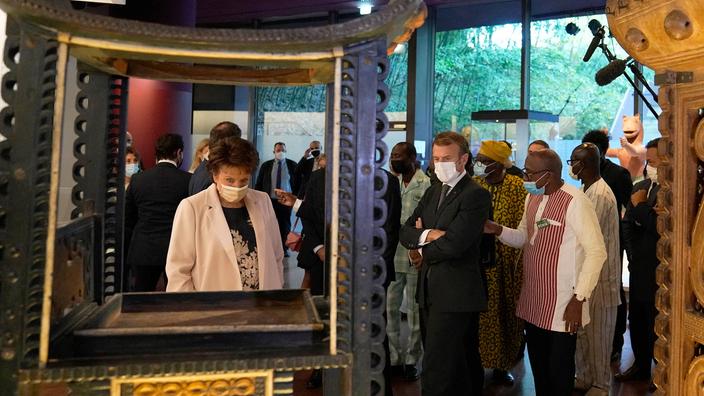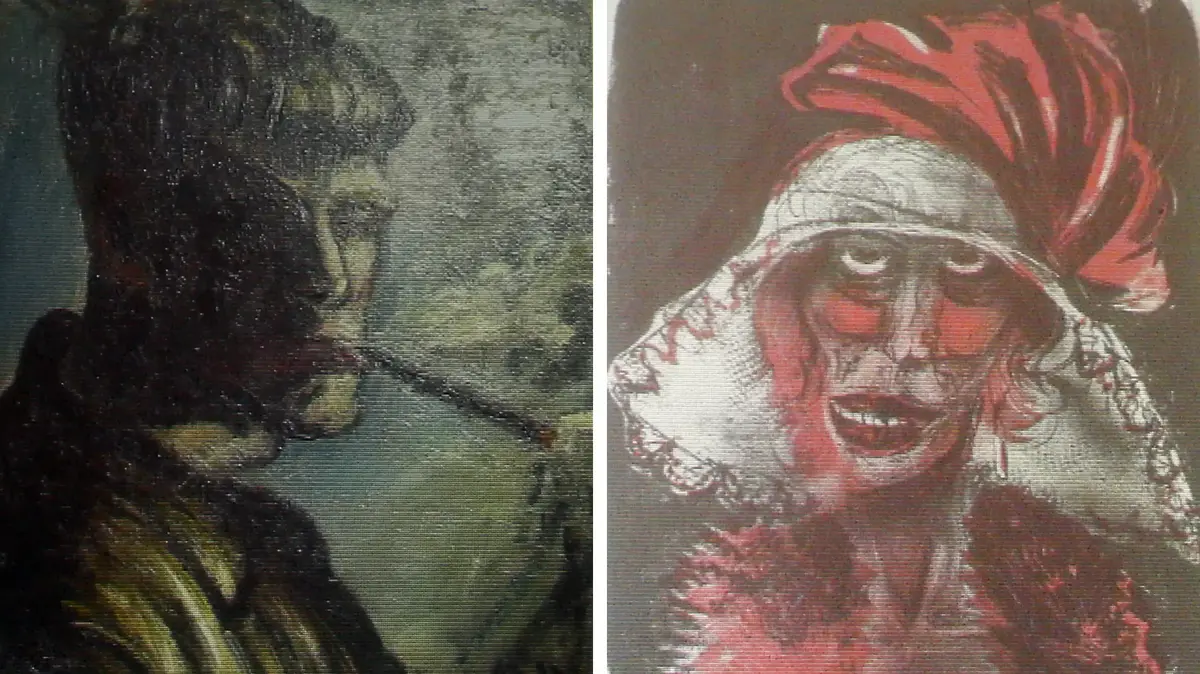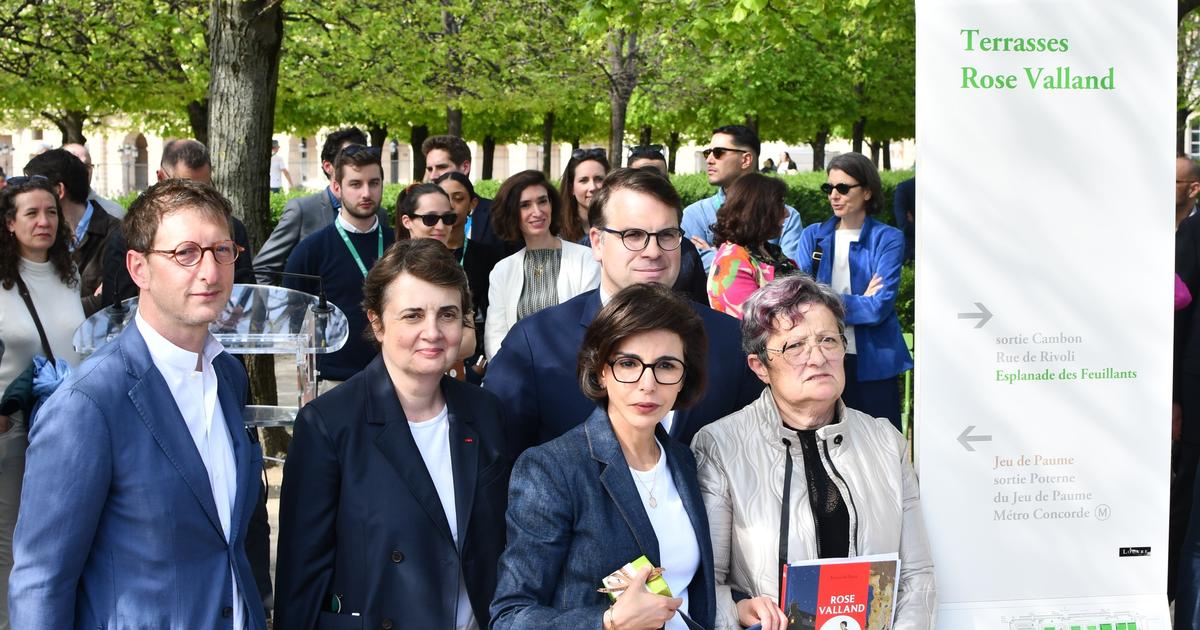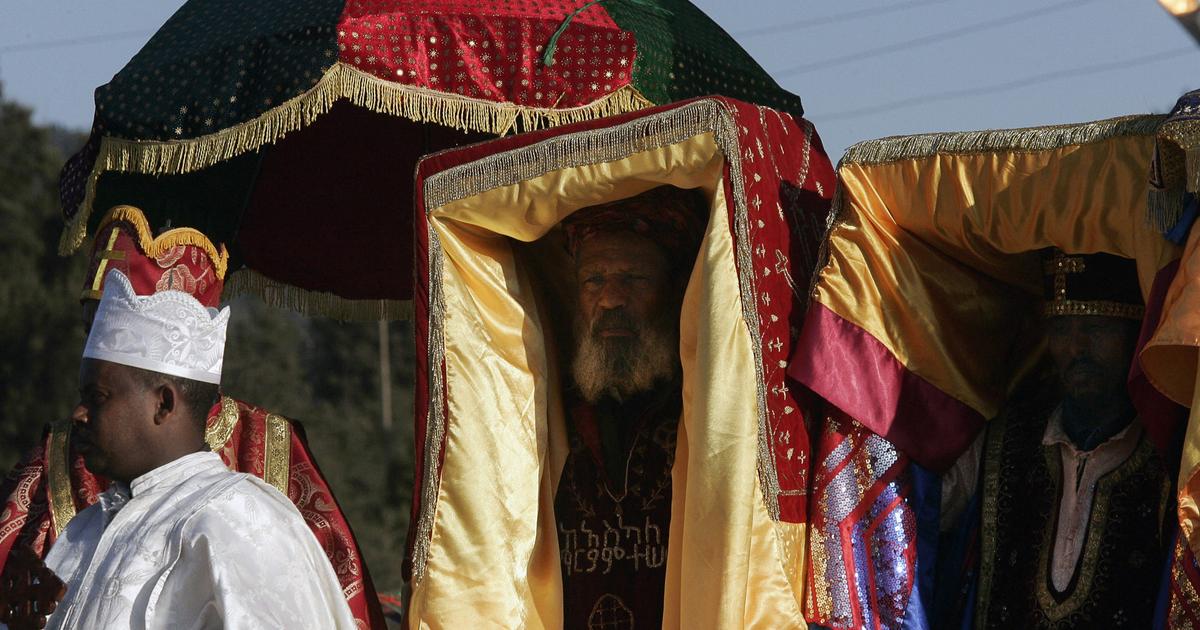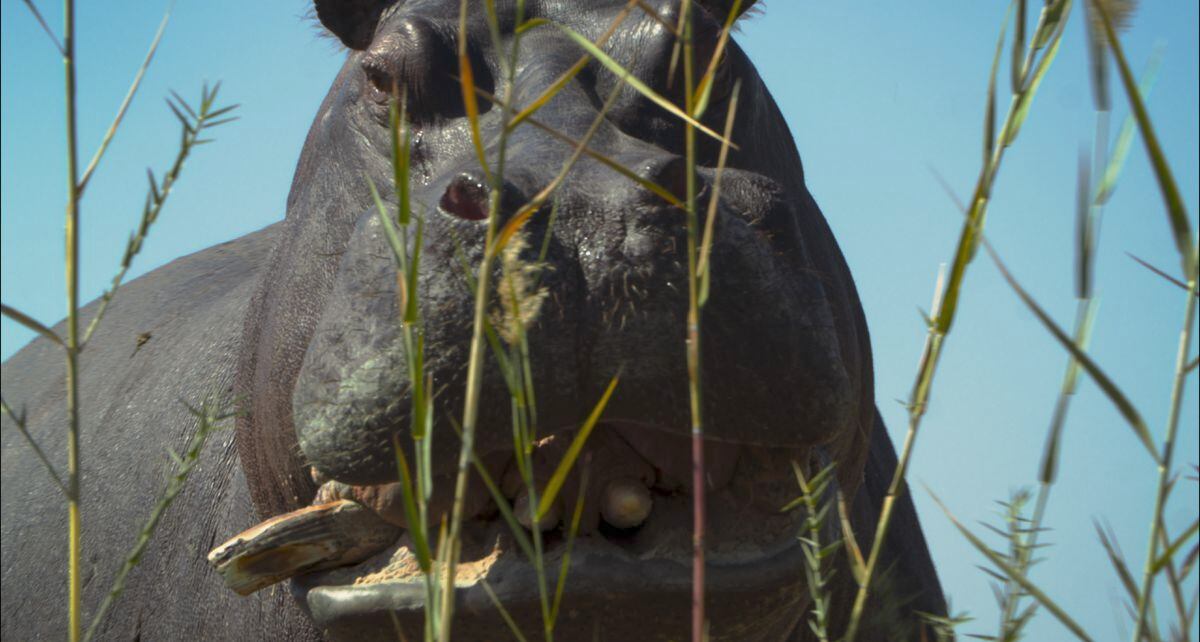In addition to the 26 pieces of the “Trésor de Béhanzin” resulting from the looting of the palace of Abomey, the historic capital of Danhomè, in 1892 and returned to Benin, France has undertaken to continue the process.
Soon, Senegal must thus recover full ownership of a saber and its scabbard attributed to El Hadj Omar Tall, a great West African military and religious figure of the 19th century.
This saber is already on display in Dakar as part of a long-term loan, but it is held by the Musée de l'Armée in Paris.
A law passed at the end of 2020 made these restitutions possible in Benin and Senegal by allowing exceptions to the principle of inalienability of works in public collections, in the case of characterized looting.
To read also Emmanuel Macron assures that the restitutions of African heritage will not be the "deed of the prince"
At the end of 2020, France also deposited in Madagascar a crown in gilded metal and velvet which once surmounted the dome of the royal canopy of Queen Ranavalona III, Madagascan sovereign who had resisted during her reign (1883-1897) to French colonialism. .
For its part, Côte d'Ivoire, which officially asked France at the end of 2018 for the restitution of 148 works, will soon be awarded the Djidji Ayokwe, the drum-speaker of the Ebrié people, long claimed.
A symbolic object, this communication tool was confiscated by the colonists in 1916 and is currently kept at the Quai Branly museum in Paris.
It remains to be seen whether the despoiled countries meet the conditions for the conservation of these works.
This is the question that many dealers and art market experts ask themselves.
In
Le Monde Diplomatique
, Yves-Bernard Debie, the president of the Collectif des antiquaires de Saint-Germain-des-Prés says he is very worried.
“
These works of art which belong to the heritage of humanity, to whom will they be returned?
Do African governments have the same notion of heritage conservation as we do?
Will they have the right to resell them immediately?
He
asks himself.
Germany ahead, Belgium in study
Nigeria signed an agreement with Germany in mid-September for the return from the summer of 2022 of art objects looted during the colonial era. Across the Rhine a thousand pieces have been identified in public collections, but the final number of works returned will depend on their condition. The Ethnological Museum in Berlin has 530 historical objects from the former Beninese kingdom, including 440 bronzes. Previously, Germany had returned in 2019 to Namibia the stone cross of Cape Cross, monument over three meters. Erected in 1486 by Portuguese navigators, the cross was shipped in the 1890s to Berlin, during German colonization.
Regarding Belgium, the government presented at the beginning of July a roadmap to return to the Democratic Republic of Congo (DRC), its former colony, thousands of cultural objects acquired improperly, particularly during the violence committed under the reign of Leopold II. between 1885 and 1908. The process could take several years.
Julien Volper, curator of the Royal Museum for Central Africa, in Tervuren, near Brussels, one of the most important European collections of African art, is alarmed by the
"damage it can represent for the collections. national ”.
The British Museum against any restitution
Cambridge University handed over a bronze rooster sculpture looted a century ago in Nigeria on October 27, becoming the first British institution to return an object stolen during colonization. The restitution procedure began after a campaign by students against symbols recalling the colonial past. This work was one of hundreds of sculptures, engravings and bronzes looted by British forces in 1897 during the destruction of Benin City, then capital of the Kingdom of Benin located in present-day Nigeria.
In the process, the University of Aberdeen, Scotland, also returned to Nigeria a bronze representing an Oba (king) of Benin, acquired at auction in 1957. The British Museum in London, which has the largest collection of these. bronzes, also scattered in Germany or the United States, has so far refused to be returned, pleading for returns in the form of a loan.

